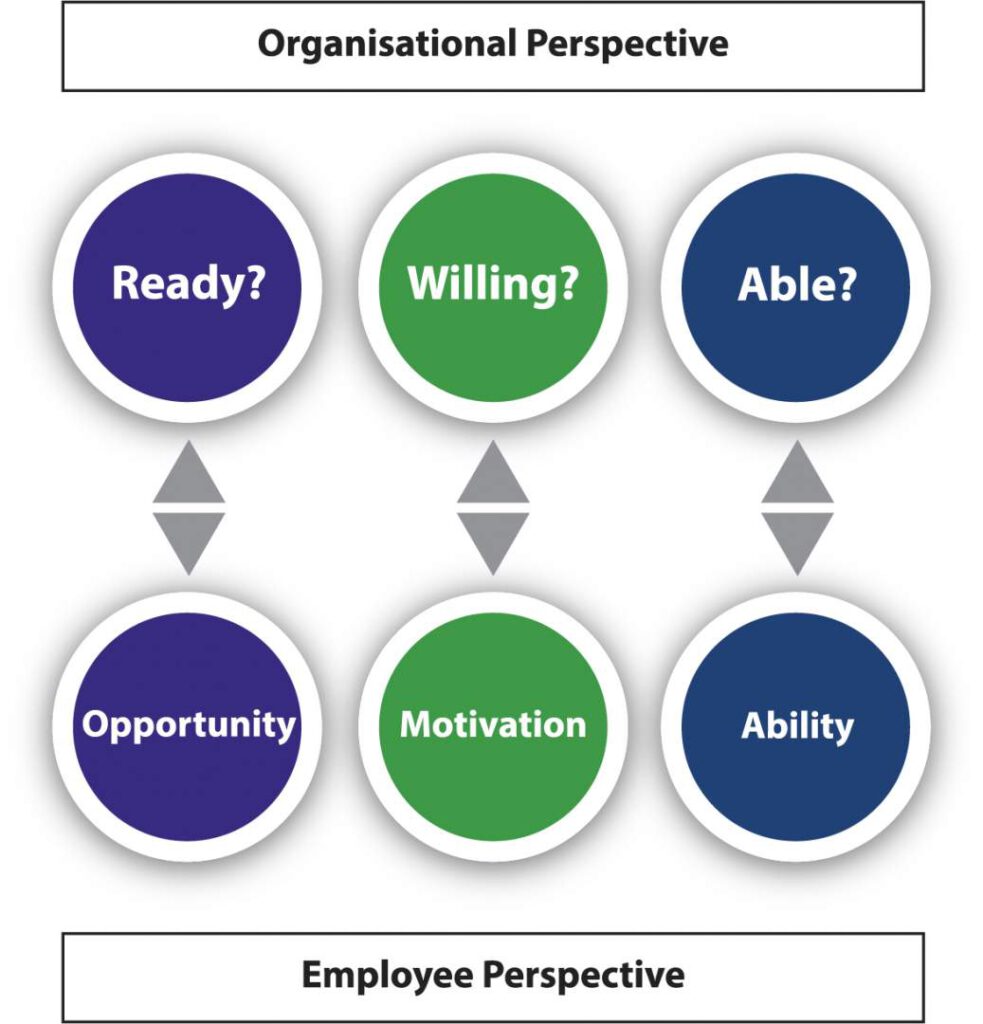Did you realise only 14% of Succession Planning and Talent Management Programmes are considered a success?
That was the conclusion from a 2009 survey by the American Society for Training and Development (ASTD). Frankly, experience tells me things haven’t improved over the last few years.
Whatever the figure, there’s plenty of opportunity for improvement. Talent Management in organisations is critical if you’re going to retain and develop the leaders that are going to take your organisation into the future. Here’s the number one reason it doesn’t work and what you can do about it.
Talent Management – Organisation and Employee Perspectives
Talent management and succession planning are about having leaders in place who can deliver the future vision and goals of the organisation. So organisations take a top-down approach to managing talent. They ask three questions about each individual
(1) Is the individual ready to commit to the organisation, its vision and values?
(2) Is the individual willing to take on the challenges and responsibilities involved in the new role?
(3) Is the individual able? Do they have the skills and behaviours needed to perform their new responsibilities successfully?
But what organisations sometimes don’t realise is that their high-potential employees are taking a bottom-up approach to managing their careers. For them, job satisfaction and performance are also influenced by three things:
1. Ability – are they confident they have the skills and experience to perform in their new role?
2. Motivation – do they want or desire the changes that come with the new role, for example, prestige and recognition? Advancement and influence? Work-life balance? Job enjoyment?
3. Opportunity – do they feel the organisation will provide them with the career opportunities they are looking for? Do they think they will have the resources to carry out the role to the level needed?
The Need for Alignment
So organisations think top down when developing talent. Employees think bottom up when developing their careers. Ultimately, you need to bring the two together.
The top reason talent management doesn’t work is that organisations don’t spend enough time focussing on the join.

You need a joined up approach to succession and talent management that creates a fit between the ambitions of an organisation and the ambitions of individuals. It’s not enough just to think about what the organisation needs. If you don’t dovetail that with what your employees need, your best people will manage their careers out of your organisation instead of within it.
Wherever possible give people the opportunity and ability to do what they have the potential and motivation to do.
Effective talent management and leadership development relies on evolving roles as well as developing individuals, so adjust the roles in the organisation to fit the strengths of the people available. At the same time, develop (and recruit) leaders to meet the needs of the organisation.
Take Action
Do you want to develop your future leaders? If so, there’s no better start than my eBook, LEADER – Develop remarkable leaders who deliver amazing results.
In just a few pages you’ll discover six practical strategies for developing your leadership talent. You can download the report by clicking the button below
[button size=’large’ style=” text=’Download your free LEADER ebook here >>’ icon=” icon_color=” link=’/LEADER-ebook’ target=’_self’ color=” hover_color=” border_color=” hover_border_color=” background_color=” hover_background_color=” font_style=” font_weight=” text_align=” margin=”]



